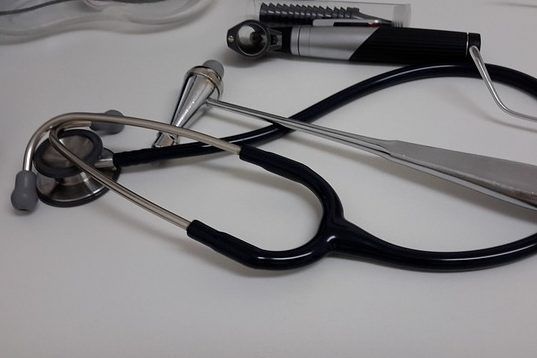Watch for these signs:
♦ Bruising, scars, burns, cuts, especially those in non-apparent places
♦ Multiple STD or pregnancy tests
♦ Fearful, anxious or depressed mood
♦ Cash payments, no insurance
♦ Malnourished
♦ A third party may speak for the patient and not allow them to speak
♦ Substance addiction or the appearance of withdrawal symptoms
♦ Lying about age
♦ Patient transient or no address (or the patient doesn’t know what city he/she is in)
♦ Tattoo of a name or strange symbol
In a PATH video, Lori Cohen, Director of the Anti-Trafficking Initiative Sanctuary for Families explains, “Trafficking victims are frequently tattooed with the name of their trafficker, or the trafficker has some sort of tag that’s an identifying tag, so that if the victim tries to run away she can be readily identified by other pimps as the property of her trafficker. If a healthcare provider asks the right questions in an environment that’s not judgemental and where a message is being communicated that this is being asked to help the individual, in many cases, a victim will be able to disclose what her experience has been.”
Trafficking Intervention Techniques
Do not react in the moment or act shocked if a young person decides to disclose their situation. This can be interpreted the wrong way, as a reaction or disgust toward the victim.
Protect the patient’s identity and privacy even before anyone else is called in: the moment the healthcare provider suspects the patient trafficking victim, change the patient’s name in the records, providing alias.
Write the patient a prescription for a follow up for some medical indication, otherwise you may never see that patient again.
Get the patient alone, especially if they are accompanied by a controlling companion who insists on answering providers’ questions.
Ask your patient if s/he’d like the police involved. Patients should be assured that what they are telling physicians will be kept confidential. They should also be aware that there are times when they are a mandatory reporter.
Avoid the rescue fantasy. This impulse is normal and harmful. Intervening prematurely or without patient consent compromises trust. Physicians can’t fix the situation but may be able to provide a stepping stone in a potentially long path.
Cohen says, “Intervening can be very complicated. Trust is key. If a doctor can continue to communicate that they are concerned about you—we want to help you, we’re not going to force you to do anything you don’t want to do—it gives the patient space to believe that this is someone who really cares about her.”
How human trafficking can be reported…
♦ National Human Trafficking Resource Center (888-3737-888)
♦ Text “BeFree” (233733)
♦ Childhelp (800-4-A-CHILD)
♦ National Center for Missing & Exploited Children (800-THE-LOST)
To read the original article about trafficking intervention, click the link below.
Source: PATH







Freedom United is interested in hearing from our community and welcomes relevant, informed comments, advice, and insights that advance the conversation around our campaigns and advocacy. We value inclusivity and respect within our community. To be approved, your comments should be civil.